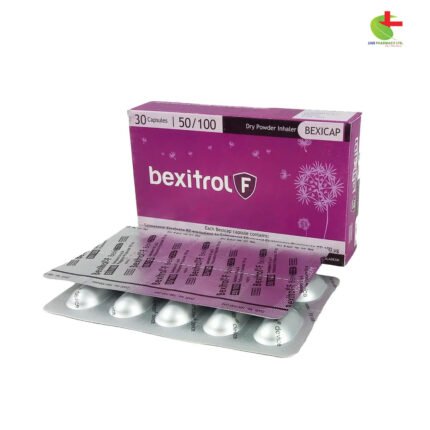D-Rise Injectable Solution
120.00৳ Injection
- Vitamin D3 is crucial for calcium and phosphate absorption, supporting bone and dental health.
- Essential in preventing conditions like rickets, osteomalacia, and osteoporosis.
- Plays a key role in immunity and is vital during pregnancy and breastfeeding.
- Available in various forms including capsules, tablets, syrup, and injections, each tailored to specific needs and age groups.
 Brand
Brand
|
Beximco Pharmaceuticals Ltd |
|---|---|
 Generics
Generics
|
Cholecalciferol [Vitamin D3] |
 Type
Type
|
Injectable Solution (Oral & IM) |
Indications
Vitamin D3 deficiency can arise in individuals with limited sunlight exposure or inadequate dietary intake. Essential for proper calcium and phosphate absorption, Vitamin D3 supports healthy bones and teeth, helping prevent rickets, osteomalacia, and osteoporosis. It also plays a crucial role in reducing the risk of pre-eclampsia during pregnancy and breastfeeding, supporting the growth of the infant. Additionally, Vitamin D3 is vital for enhancing the immune system.
Pharmacology
Vitamin D3, in its active form Calcitriol, works by binding to Vitamin D receptors (VDRs) present throughout various body tissues. Being fat-soluble, Vitamin D3 has a half-life of approximately 50 days. It is absorbed in the small intestine, binds to specific α-globulins, and is transported to the liver, where it is metabolized into 25-hydroxy Vitamin D3 (Calcidiol). The kidney further converts Calcidiol into 1,25-dihydroxy Vitamin D3 (Calcitriol), which is responsible for enhancing calcium absorption. Unmetabolized Vitamin D3 is stored in fat and muscle tissues and is eliminated through feces and urine.
Dosage & Administration
For Capsules:
- Adults:
- Treatment of Vitamin D3 Deficiency: 40,000 IU once weekly for 7 weeks. Maintenance: 1,400-2,000 IU/day. Check 25-hydroxyvitamin D levels 3-4 months after starting maintenance.
- Prevention: 20,000 IU every 4 weeks. Higher doses may be necessary based on individual needs.
- Osteoporosis Therapy: 20,000 IU once a month.
- Children (12-18 years):
- Treatment: 20,000 IU every 2 weeks for 6 weeks.
- Prevention: 20,000 IU every 6 weeks.
For Film-Coated Tablets:
- 1,000 IU (1-2 tablets) daily, or as directed by a physician. Take with food or within 1 hour after a meal.
For Oroflash or Chewable Tablets:
- 1,000 IU to 2,000 IU daily, or as directed by a physician. Chew thoroughly before swallowing. Take with food or within 1 hour after a meal.
For Syrup:
- At Risk of Cholecalciferol Deficiency:
- 0-1 year: 400 IU/day (2 ml)
- Over 1 year: 600 IU/day (3 ml)
- For Cholecalciferol Deficiency:
- 0-1 year: 2,000 IU/day (+50,000 IU/week) for 6 weeks
- 1-18 years: 2,000 IU/day for 6 weeks
For Injection:
- Prevention:
- Infants on Vitamin D-enriched milk: ½ ampoule (0.5 ml) or 100,000 IU every 6 months.
- Nursed infants or those not on Vitamin D-enriched milk, and young children up to 5 years: 1 ampoule (1 ml) or 200,000 IU every 6 months.
- Adolescents: 1 ampoule (1 ml) or 200,000 IU every 6 months during winter.
- Pregnancy: ½ ampoule (0.5 ml) or 100,000 IU from the 6th or 7th month of pregnancy.
- Elderly: ½ ampoule (0.5 ml) or 100,000 IU every 3 months. For conditions like digestive disorders or treatment with antiepileptics, consult a physician for the appropriate dosage.
- For Vitamin D Deficiency:
- 1 ampoule (1 ml) or 200,000 IU, which may be repeated every 1 to 6 months, or as directed by a physician.
Note: Use medication as prescribed by your doctor.
Interactions
Certain medications may cause Vitamin D3 deficiencies by affecting its absorption and metabolism, including magnesium-containing antacids, digoxin, thiazide diuretics, cholestyramine, cholestipol, phenytoin, phenobarbital, orlistat, and mineral oil. Corticosteroids like prednisolone may also increase Vitamin D3 requirements.
Contraindications
Vitamin D3 should not be used in cases of hypercalcemia or by individuals with known hypersensitivity to Vitamin D3 or any related components. It is also contraindicated in the presence of Vitamin D3 toxicity.
Side Effects
Possible, though rare, side effects include loss of appetite, fatigue, nausea, vomiting, diarrhea, constipation, weight loss, increased urination, sweating, headache, thirst, dizziness, and elevated calcium and phosphate levels in blood and urine.
Pregnancy & Lactation
Doses up to 4,000 IU of Vitamin D3 are considered safe during pregnancy. The recommended daily intake is 400 IU, but higher doses may be needed for those with deficiencies. Pregnant women should consult their healthcare provider to determine their specific needs.
Vitamin D3 and its metabolites are present in breast milk. Although overdose in infants due to maternal supplementation is rare, any additional Vitamin D3 for a breastfed child should be carefully considered.
Precautions & Warnings
Monitor plasma calcium levels in individuals receiving high doses of Vitamin D3, those with renal impairment, and during pregnancy and lactation. Consult a healthcare provider before using Vitamin D3 if you are on digoxin or thiazide diuretics, or have liver/kidney disease, primary hyperthyroidism, lymphoma, tuberculosis, or granulomatous disease.
Use in Special Populations
The safety and efficacy of Vitamin D3 in children under 12 years have not been established.
Overdose Effects
Excessive Vitamin D3 intake can lead to hypervitaminosis D.
Therapeutic Class
Vitamin for bone health, Vitamin D preparations
Storage Conditions
Store below 30ºC, protected from light and moisture. Keep out of reach of children.













Reviews
There are no reviews yet.